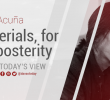Last Monday I was on a bus back to the Netherlands from the town of Trier, Germany. Claiming to be the oldest city in Germany, and named as the capital of the northwestern extent of the Roman Empire in the fourth century, Trier is also better known as the birthplace of Karl Marx.
As it happens 2018 is the 200th birth anniversary of Marx, and the whole of Trier is celebrating. A Grand State Exhibition until October is sponsoring displays and activities in the city’s major museums, particularly the Rheinisches Landesmuseum and the City Museum Simeonstift. Karl Marx House, the house where Marx was born in 1818, also unveiled a completely new exhibition last May, Marx’s birth month.
Due to time constraints, I was only able to visit the Karl Marx House and the City Museum, but they were more than enough to give one insights not only into Marx’s life and works per se, but how it is packaged by the German government (it is a State exhibition, after all) and presented to the public. (The State is taking this seriously by the way: upon exiting one of the exhibits I was asked if I could answer an evaluation form about how I had learned of the programme and what I had thought of it. The funny irony of filling out a lengthy form – a stereotypical feature of bureaucracy-heavy authoritarian states but really an actual feature of present, targets-and-monitoring-obsessed capitalist states – in a Marx exhibit was not lost to me.)
The facts about Marx’s biography (his education, his occupations, the places where he stayed, his network of friends and comrades, and the circumstances of his family life) are already all well known. What interested me more was how these were re-presented and re-read in ways that are perceived to be more relevant to the audiences of the current century.
One such rereading was explicitly identifying Marx as a stateless person. While his reputation as an uncompromising journalist brought him opportunities to work at newspapers in various parts of Europe, it was also his hard-hitting writing that expelled Marx more than once from the city in which he had been residing. In Cologne, as a member of the editorial board he turned the once-moderate Rheinische Zeitung into an influential newspaper that attracted the ire of the Prussian authorities. After it was forcibly shut down, Marx moved to Paris where yet again, his work with radical newspapers caused him to be expelled from France.
Marx then moves to Belgium where he renounces his Prussian citizenship after the Prussian government continues to harass him through their bureaucratic relations with the Belgian government. Finally forced out of Belgium and going back and forth between Cologne and Paris, Marx – with family in tow – ultimately heads to London where he would spend the rest of his life as an exile. Yes, Marx was an original bakwit.
However, there are certain limits to how the State would commemorate a man who spent virtually his entire adult life at odds with it. The result is, not unexpectedly, a more moderate Marx. This is especially apparent in the Karl Marx House exhibition that generally frowned upon succeeding national and people’s movements that claimed Marx as predecessor, such as the Bolshevik and Cuban revolutions. There is an overall tenor of being averse to invoking Marx coupled with employing radical means to effect change. To wit, their assessment of the tumultuous years of 1917-1918 reads:
“By the end of the year [1917], Lenin and the Bolshevists stage a coup and seize power during the October Revolution. They do not shy away from violence and terror. In Germany, Social Democrats are able to take control of a revolution led by war weary soldiers and workers in the last phase of the war. Although violent outbreaks do occasionally occur during the revolutionary weeks of 1918, Social Democrats pursue a different strategy: elections are supposed to safeguard the revolutionary achievements.”
Additionally, one senses an over-“intellectualization” of Marx’s legacy only to be read, re-interpreted, and discussed according to personal points of view. This to me, at the least, runs counter to one of Marxism’s most important tenet: about how philosophers have only interpreted the world, the point is to change it.
Also last Monday, the picketline of striking NutriAsia workers was violently dispersed by a combined force of company guards and Philippine National Police as the strikers and their supporters were celebrating an ecumenical mass. This is the second bloody dispersal of the picket line since the strike began in early June. Nineteen people, including members of the alternative media, have been arrested. Thankfully, the latest news is that all have been released from detention.
The temporal juxtaposition (from my point of view) of both events gave me pause. Even two hundred years after Marx’s birth, it’s uncanny how the world he and Friedrich Engels described in their various writings is readily so familiar – if not virtually the same – to ours today. People still sell their labor as a commodity, every last cent of super-profits is squeezed from workers by those who control the means of production, and defiance of these unjust arrangements are met brutally by a combined force of the bourgeoisie and the State. In addition to this, critical media work is still a professionally and personally risky engagement. As mentioned above, a great deal of the political repression Marx experienced stemmed directly from his work as a journalist and editor.
Being able to visit Marx’s birthplace is a great privilege, don’t get me wrong. But what I felt to be the highly academic approach in Trier’s commemoration of Marx highlighted the problem with treating historical legacy more as “history” than “legacy.”It also reminds us that heritage and cultural work should, and will always, be politically fraught – something that Marxist scholars have been pointing out for decades.
More importantly, while an academic understanding of Marx’s life and works is certainly needed, it must be matched over and over again with direct engagement with the people and situations that Marx (along with Engels)wrote about. As Marx’s birth bicentenary is being fêted with new books, exhibits, and uses of public spaces and media, so should it be fittingly celebrated and lived up to at the picket line, in the press rooms, and on the streets.
https://www.karl-marx-ausstellung.de/en/home.html








